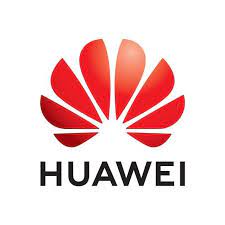HO CHI MINH CITY -- Huawei is adding supplies for data centers to its offerings in Vietnam, where storage laws are stoking demand for cloud computing provided by the likes of Amazon Web Services and local unicorn VNG.
Growth will come from "booming" use of social media and other internet platforms, as well as the government's goal of "digital transformation," Huawei Data Center Product Manager Do Van Chung told Nikkei Asia on the sidelines of a recent industry event. The tech giant now sells rack cabinets that companies use for server systems, further diversifying its Vietnam business, which already includes telecommunications, solar power, and consumer electronics.
"Vietnam has an opportunity to be a hub," Chung said, standing beside a shoebox-size model of racks with blue and red lights flashing. "It has a good environment."
The cloud and data market is attracting an array of businesses, from Mitsubishi offering backup generators to edge computing services by Vingroup's VinHMS. Major players Alibaba and AWS opt to place server farms, which cost billions to build, in bigger economies like Indonesia. But companies expect the Vietnam market to grow because of low costs, energy from Southeast Asia's biggest solar producer, and laws forcing companies to store data domestically.
The country has 27 data centers, compared with 38 in Malaysia and 70 in Singapore, according to the Singapore Computer Society.

Mitsubishi Vietnam has been selling power generators since the 1990s but more recently has been targeting clients that use a lot of computer servers, like banks, said Deputy Sales Manager Nguyen Thi Kim Hoang.
"We hope that all related parties can build safe data centers and cloud [businesses] because information is very important and there are risks if data is leaked," she told Nikkei.
Vietnam passed a cybersecurity law similar to China's that generally requires companies to store data on domestic servers. Japan, Canada and others are looking into whether the law violates trade deal commitments, while critics say it is an inefficient approach that promotes control, not security. In the past, Facebook said its servers were slowed after it resisted orders to take down content.
To meet demand for domestic storage, AWS is building "local zones" that are smaller and cheaper than data centers.
Like Huawei's Chung, Keven Chua thinks Singapore is saturated. The island has already lost data center business to Thailand and Malaysia due to land and electricity costs.
"Vietnam is the next target market for data centers," said Chua, director of Blomteq, which provides battery monitoring for HP, China Mobile, and other server clients across Southeast Asia.
There was an "obvious" COVID boom in cloud computing as people shopped and worked online, so he pursued more companies in the sector, he said.
"I couldn't wait around. I had to do something," Chua told Nikkei.
Vietnamese gaming-to-cloud services unicorn VNG expects 11% annual growth in the communist country's data center market for the next five years. The startup runs news and chat platforms and estimates that of 78 million domestic internet users, 70 million are on social media.
VNG built a private fiber-optic network to buttress its data center business. Senior Director Gary McKinnon said at last week's Vietnam Cloud & Data Center Convention there was room for improvement in the industry.
"Standards and overall resilience can be questioned as being insufficient for today's needs," he said at the event in Ho Chi Minh City.
It is the only Asian city in the world's top 10 ranked by cheap land for data centers, according to Cushman & Wakefield, but the firm's Data Center Market Comparison 2023 report rates others far higher for connectivity, cloud availability, and market size. Hyperscale cloud revenue reached $13 billion in Southeast Asia in 2022, versus $20 billion in China, it said.





